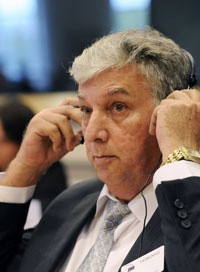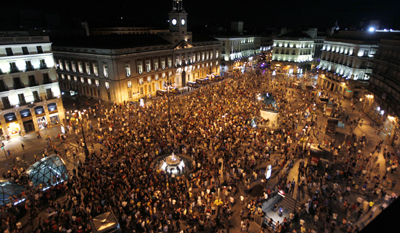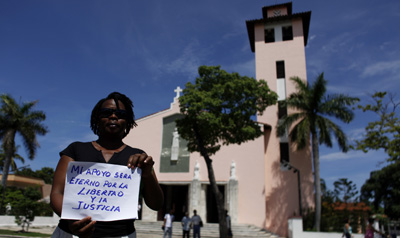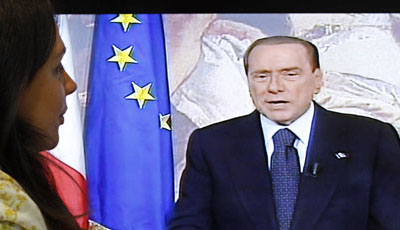
Cubans exiled in Spain: Integration or disintegration?
Desperate realities call for hope. It is not just a game of words, because you don’t play with hunger and the future (my own and my family’s). It is about going deeper into another version of circumstances. And seeing the rainbow where others see a gloomy sun and a stubborn and relentless rain.I am writing…

In Spain, police violence against press sparks concern
Spanish press associations have expressed concern about recent episodes of police violence against journalists covering demonstrations against Pope Benedict’s four-day visit to Madrid and protests staged as part of the anti-corruption 15-M movement.

After the Black Spring, Cuba’s new repression
When the last of 29 journalists jailed in a notorious 2003 crackdown was finally freed this year, it signaled to many the end of a dark era. But Cuban authorities are still persecuting independent journalists through arbitrary arrests, beatings, and intimidation. A CPJ special report by Karen Phillips
Critical Spanish journalists expelled from Panama
New York, March 2, 2011–The Committee to Protect Journalists calls on the Panamanian government to allow two Spanish journalists and human rights activists who were expelled to return to the country. The journalists were covering and documenting an indigenous demonstration on Saturday when they were detained by authorities and accused of “disrupting public order” according…
Press Cuba to keep promise to free journalists
Dear President Rodríguez Zapatero: The Committee to Protect Journalists is alarmed that the Cuban government has yet to fulfill its promise to free all journalists imprisoned during the 2003 crackdown on dissent. We urge your government, which was a key party to the agreement to release the prisoners by November 2010, to hold President Raúl Castro to his word.

Cuban deadline passes for dissident releases: What next?
Sunday marked the end of the four-month deadline Cuban President Raúl Castro had agreed to with representatives of the Cuban Catholic Church and the Spanish government to free 52 prisoners of conscience who remained in jail since the March 2003 crackdown against dissidents, known as the “Black Spring.” The Spanish foreign minister at the time,…
Moroccan authorities impeding Spanish journalists
New York, November 9, 2010–The Committee to Protect Journalists is alarmed by an increasing climate of hostility for Spanish journalists in Morocco, highlighted by official measures to prevent Spanish journalists from covering clashes in the Western Sahara. CPJ calls on Rabat to allow journalists to do their work unimpeded.

2 Cuban reporters freed, arrive in Madrid; 13 now released
New York, August 19, 2010–Formerly imprisoned Cuban journalists Fabio Prieto Llorente and Juan Carlos Herrera Acosta arrived in Spain today, bringing to 13 the number of imprisoned reporters who were freed this year as part of an agreement between the Cuban Catholic Church and the government of President Raúl Castro.

